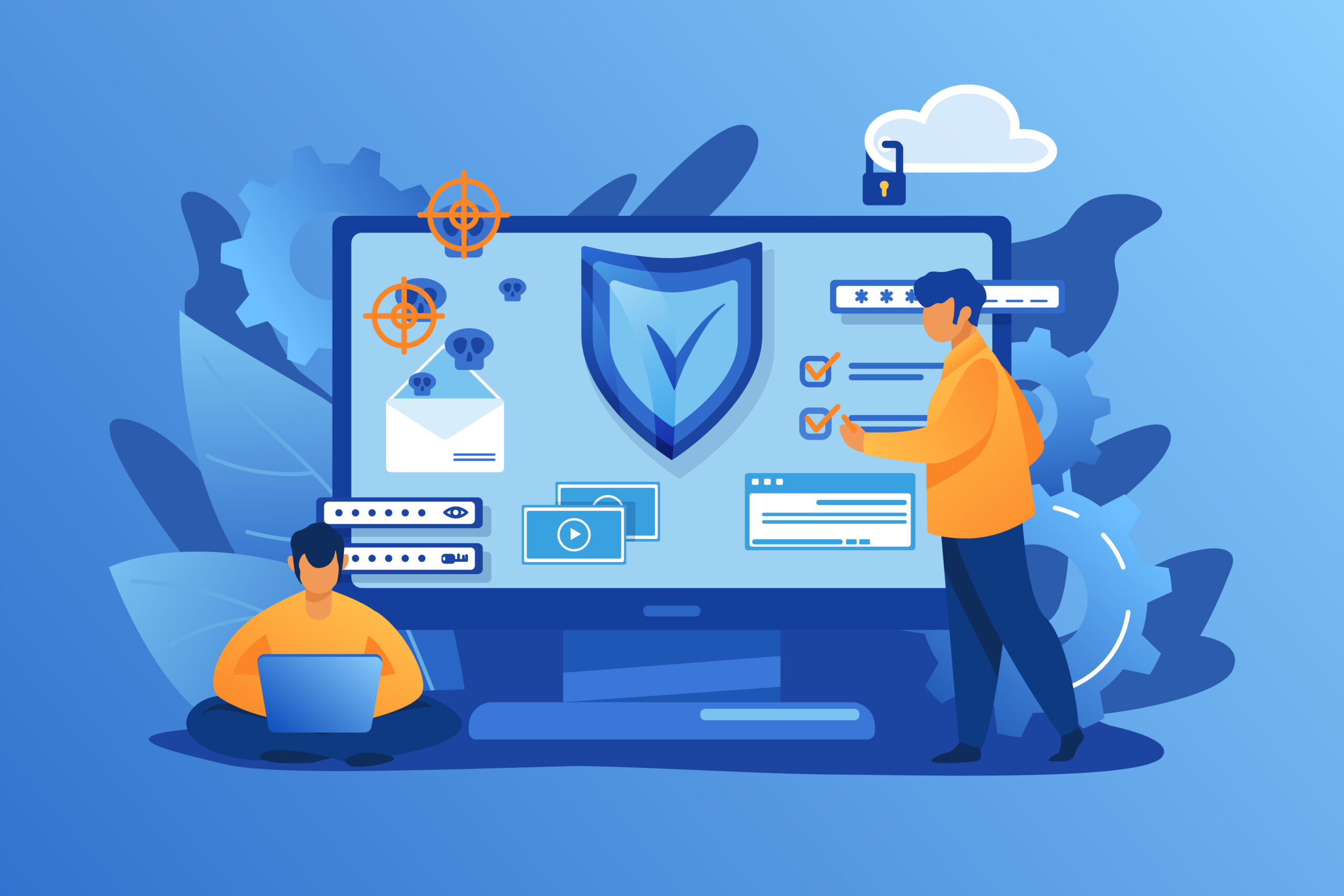Organisations must adapt swiftly to rising demands and evolving challenges. To meet these needs, they rely on smarter tools for managing facilities and assets. Computer-Aided Facility Management (CAFM) systems and Enterprise Asset Management (EAM) software have emerged as essential tools for streamlining processes, reducing costs, and improving efficiency.
With 2025 ushering in a new wave of innovation, let’s explore how these systems evolve and transform industries.
What Is a CAFM System?
A CAFM system orchestrates the day-to-day operations of a facility. It collects, organises, and analyses data about spaces, assets, and workflows. Whether you manage a single building or a vast campus, CAFM systems simplify the complexities of maintaining and optimising facilities.
Traditional methods relied on cumbersome paper records and isolated spreadsheets. In contrast, modern CAFM systems integrate tools that provide real-time insights. This shift equips facility managers to make confident decisions while minimising inefficiencies.
EAM Software: A Game Changer for Asset Management
EAM software focuses on the entire lifecycle of physical assets. It ensures assets function at peak performance, receive proper maintenance, and retire strategically.
Industries like manufacturing, healthcare, and logistics depend heavily on reliable equipment. EAM software monitors machinery, tracks maintenance schedules, and alerts teams about potential risks. This proactive approach prevents downtime, lowers repair costs, and extends the life of expensive equipment.
Why Are These Tools Crucial in 2025?
Modern businesses face mounting pressures to improve performance while conserving resources. Managing facilities and assets manually results in delays, errors, and waste. CAFM systems and EAM software eliminate these challenges by automating key processes, optimising resource use, and simplifying decision-making.
Imagine overseeing a hospital’s operations. A CAFM system tracks space utilisation, ensures proper maintenance, and coordinates tasks across departments. Meanwhile, EAM software manages medical equipment, schedules repairs, and monitors performance. Together, these tools create a seamless system where efficiency drives outcomes.
Core Features of CAFM Systems in 2025
Modern CAFM systems blend advanced features that address the evolving needs of organisations. Key functionalities include:
- Space Management: These systems map and organise spaces efficiently, ensuring every square metre serves a purpose.
- Maintenance Scheduling: Automated tools allocate tasks and prevent maintenance delays.
- Asset Tracking: Real-time monitoring ensures assets remain accounted for and functional.
- Energy Monitoring: Energy use patterns reveal areas to optimise consumption and reduce waste.
- Comprehensive Reporting: Customisable dashboards present actionable insights for better planning.
EAM Software: Features and Capabilities
EAM software elevates asset management through innovative features that support efficiency and reliability.
- Predictive Maintenance: Sensors track equipment performance and flag potential issues before they escalate.
- Mobile Access: Technicians access asset information and update records on-site, ensuring immediate action.
- Regulatory Compliance: Built-in compliance tools guide organisations through industry standards.
- Integration Capabilities: These systems connect seamlessly with ERP and CRM platforms, creating unified workflows.
- AI-Driven Analytics: Data-driven insights empower managers to make proactive decisions.
The Advantages of Adopting CAFM and EAM Solutions
Embracing CAFM systems and EAM software revolutionizes operations in impactful ways:
- Boosts Efficiency: Automating repetitive tasks lets employees tackle strategic goals without distractions.
- Cuts Costs: Proactive maintenance curbs repair expenses and extends asset longevity.
- Drives Sustainability: These systems monitor energy use and resource consumption, encouraging eco-friendly practices.
- Improves Decision-Making: Clear, real-time data equips leaders to make confident and timely choices.
- Enhances Safety: Regular inspections minimize workplace risks and ensure compliance with regulations.
Consider a manufacturing plant that uses EAM software to track machinery. Predictive alerts flag potential issues, triggering repairs before breakdowns disrupt production. This keeps operations steady and costs manageable.
Trends in CAFM and EAM for 2025
Emerging trends in CAFM and EAM software reflect a shift toward intelligent, interconnected systems:
- IoT Integration: Smart devices gather real-time data, enabling precise monitoring and swift action.
- Cloud-Based Platforms: These solutions offer scalable and flexible access to meet evolving demands.
- Digital Twins: Virtual models of assets reveal performance patterns and uncover hidden issues.
- AI and Machine Learning: Advanced tools optimize maintenance schedules and anticipate future needs.
- Focus on Sustainability: Features that calculate carbon footprints and track energy consumption align with global environmental goals.
These advancements point to a future where technology reshapes operations, driving efficiency, innovation, and sustainability.
Selecting the Right Solution
Choosing the right CAFM system or EAM software requires careful evaluation. Consider these factors:
- Scalability: The solution must accommodate future growth without requiring major upgrades.
- Ease of Use: Intuitive systems ensure swift adoption and minimal training needs.
- Integration Potential: Ensure the software aligns with your existing tools and workflows.
- Customisation: Look for systems that adapt to the unique needs of your organisation.
- Support Availability: Reliable customer service ensures smooth implementation and ongoing use.
Overcoming Common Challenges
Implementing new software often involves hurdles. Address these issues effectively:
- Resistance to Change: Engage teams early, provide training, and show tangible benefits.
- High Initial Costs: Frame the investment as a long-term strategy that reduces expenses over time.
- Data Migration: Plan carefully to ensure accurate transfer of information.
- Customisation Needs: Work closely with vendors to align features with your goals.
- Ongoing Updates: Partner with providers that offer consistent support and enhancements.
The Future of CAFM and EAM
As technology advances, CAFM systems and EAM software will continue to evolve. Innovations in AI, IoT, and sustainability will unlock new possibilities. Businesses that embrace these changes position themselves to outperform competitors and adapt to the challenges of tomorrow.
By investing in these tools today, organisations can improve efficiency, save resources, and meet environmental goals. The future of facilities and asset management is not just about solving problems—it’s about creating opportunities for growth and success.
Conclusion
CAFM systems and EAM software offer more than convenience; they provide a strategic advantage. These tools simplify management, reduce costs, and enhance sustainability. In 2025, the organisations that embrace these solutions will lead their industries. By choosing the right tools, planning carefully, and acting decisively, businesses can transform operations and secure long-term success.
At yCloudx, we specialise in delivering cutting-edge CAFM and EAM solutions tailored to your organisation’s unique needs. Partner with us to harness the power of innovation and drive your business forward. Take the first step. Equip your organisation with the tools it needs to thrive in a changing world.
Also Read
- ► Turn Your Silver into Instant Cash: A Comprehensive Guide
- ► ORM Services in India: Enhancing Your Brand’s Reputation in the Digital Era
- ► Guaranteed quality car rental at the best price
- ► Best Online Cricket ID Free Trusted by Experts
- ► All you Need to Know About Ravensbourne University London
- ► Standardized Analysis of Materials, Samples, and Systems: A Pathway to Environmentally Friendly New Materials
- ► CD BioSciences Introduces Pioneering Eco-Friendly Material Performance Analysis and Customization Services
- ► Europe Saffron Market Outlook: Growth, Share, Value, Size, and Trends , Industry Overview and Forecast to 2030
- ► Straightening Machines: The Ultimate Solution for Precision and Efficiency in Manufacturing
- ► Advanced Roofing and Siding Now Providing Fortified Roofs in Slidell
- ► Roofers in North London: Your Trusted Partner for Superior Roofing Solutions
- ► Digital Banking Jobs: Riding the Wave of Financial Innovation
- ► Elevate Your Brand, Engage Your Audience: Digital Kiosks
- ► Giant African Land Snails for Sale and Delivered to Your Door
- ► Discover the Best House Cleaning Company in Gainesville & Cumming, GA





